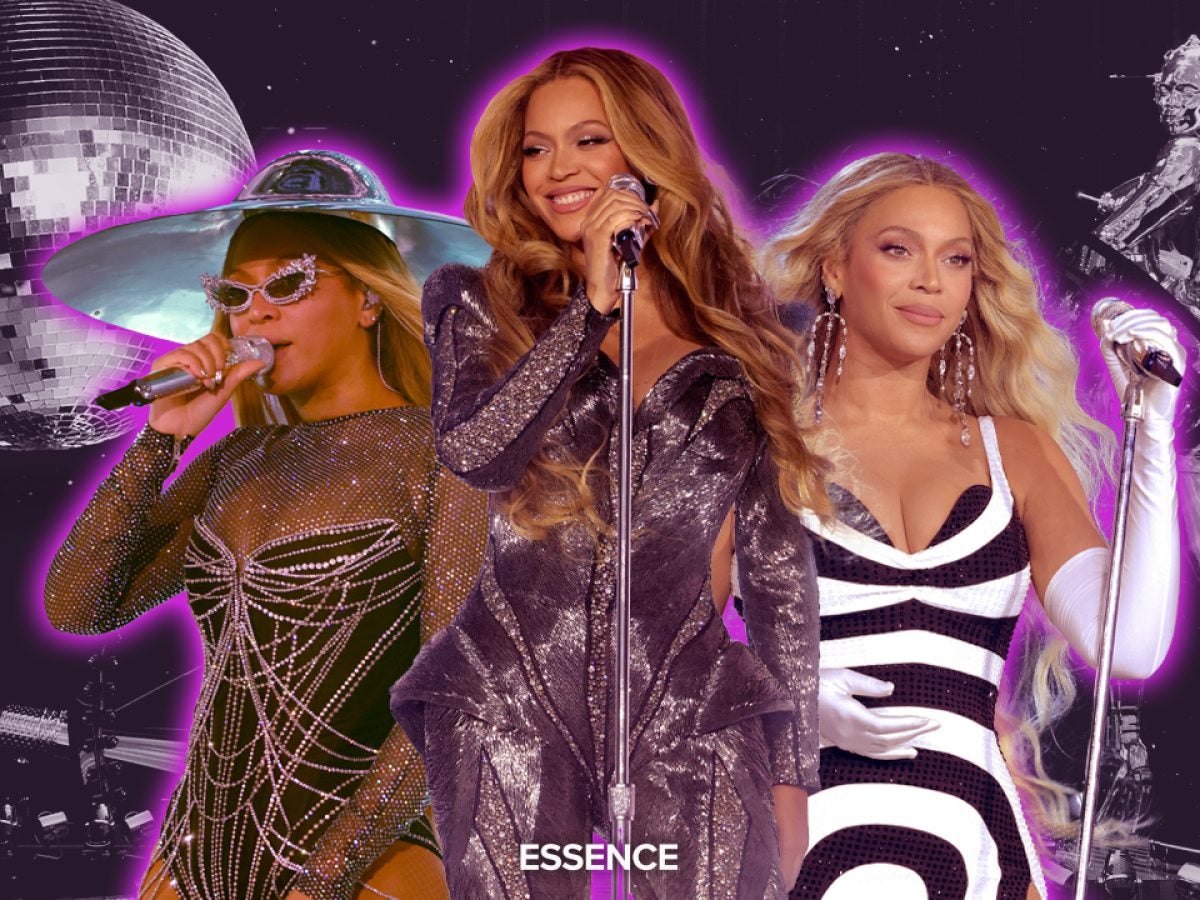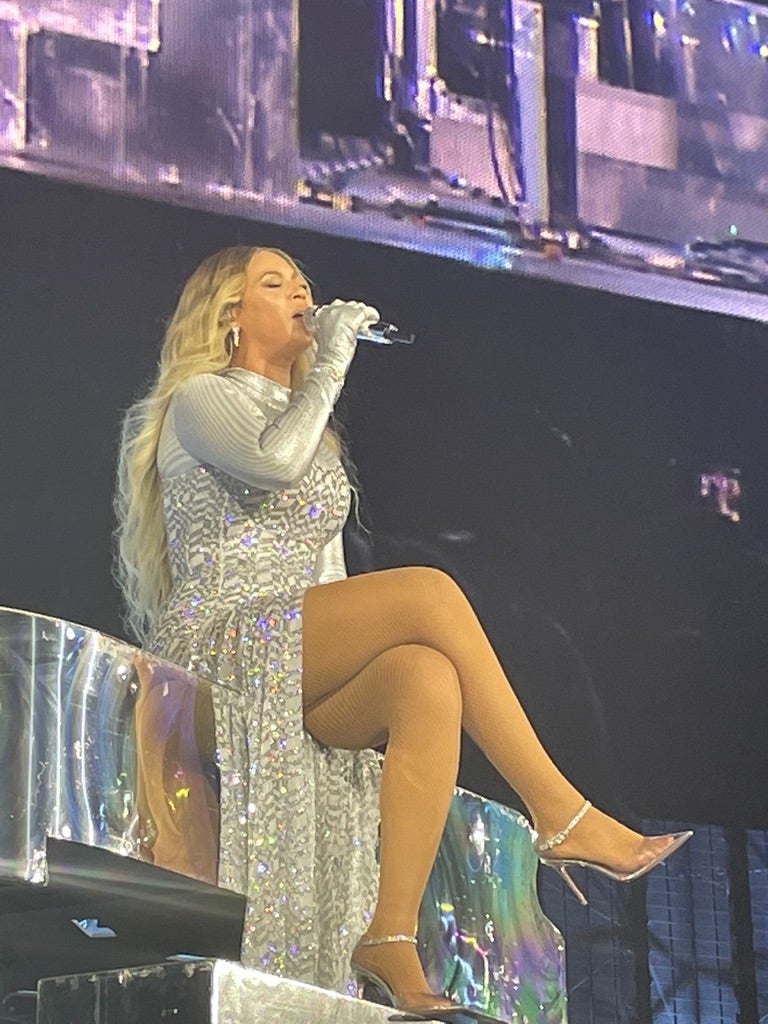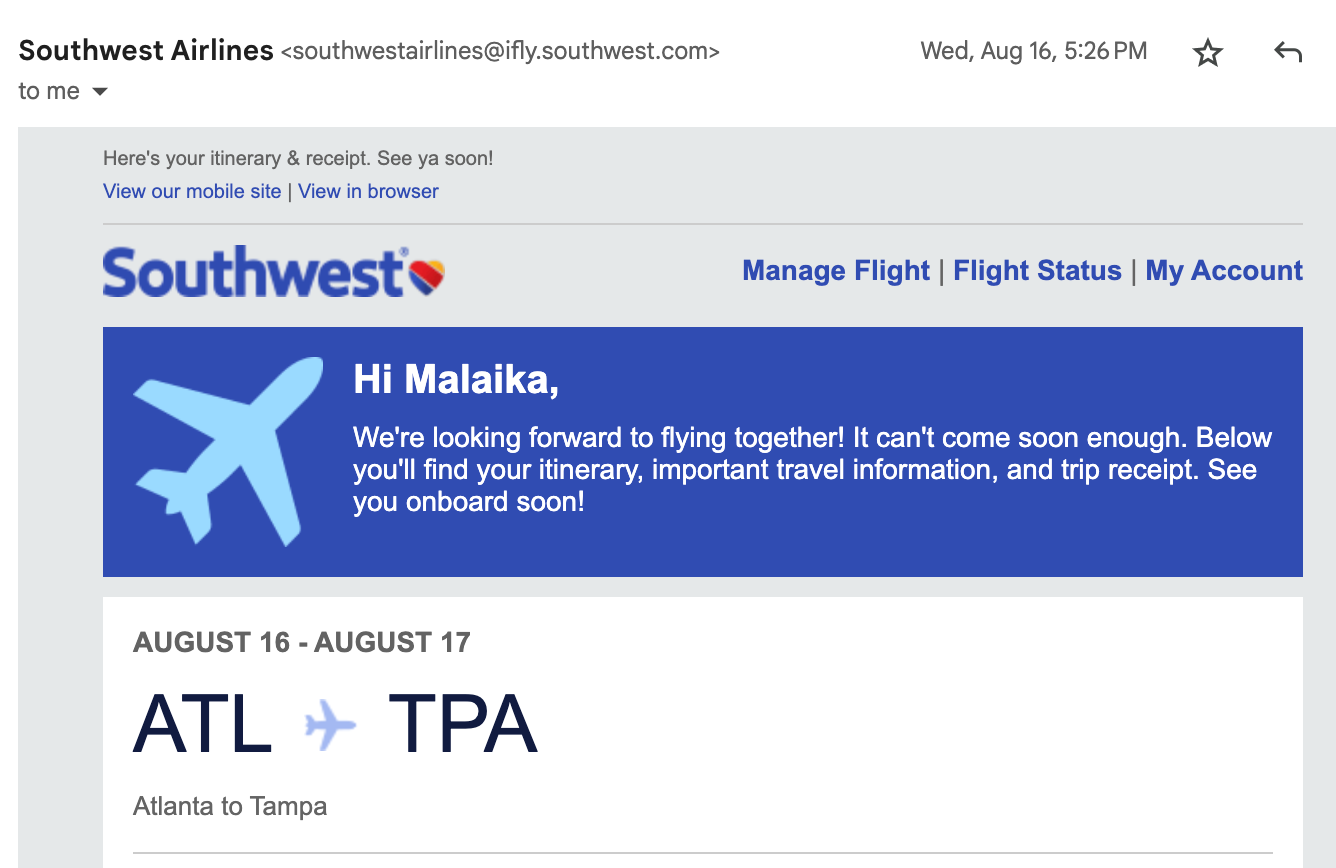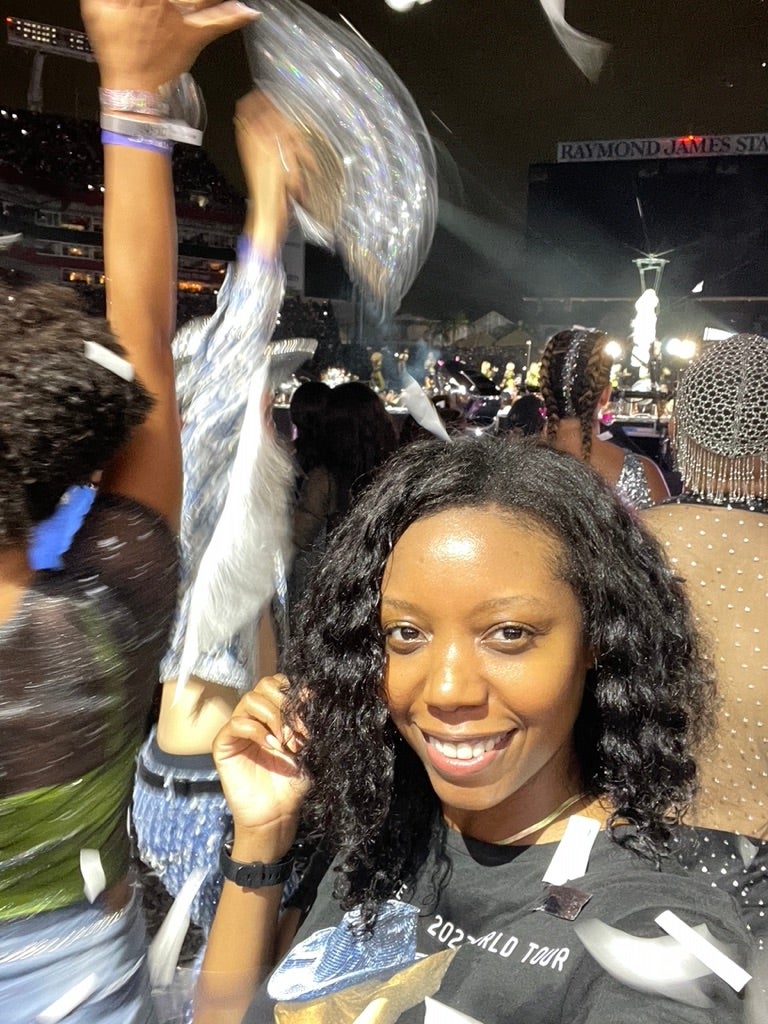
My name is Malaika and I have a problem. I have heard that the first step to recovering from an addiction is to admit you have one. It started off small and innocuous enough. Beyoncé released her seventh solo studio album, Renaissance, last summer. Almost instantly, I was hooked.
Beyoncé’s international tour for the album has been equally intoxicating, making for a remarkably expensive habit. I couldn’t just see her one time. It was multiple. Somehow, I went from trying to score a ticket to watch her live at her first North American stop in Toronto to hightailing it to my third show to get ever-closer to the musical icon.
I realized– after sprinting through Atlanta’s airport to catch a last minute flight to Tampa with nothing but a prayer and the essentials that could fit in my high waisted jean pockets– that I advanced to another, fanatical level of the Beyhive. How did I get here?
It starts with the Renaissance album itself.
As Beyoncé celebrates 20 years as a solo artist, I have marveled at her evolution. While most artists become stagnant in their later years, the Houston native has only gotten better. Her vocals. Her experimentation. Her commitment to Black musical artistry and subcultures. All of it has culminated in the gift that is Renaissance.
She made songs that elevated every corner of Black music geographically and sonically, keying in on genres that we revered from house parties and HBCU homecomings, to cookouts and queer ballrooms, from D.C. to Detroit. And she put them on world stages, regardless of their potential for commercial success.
For a month, the album was all I played. There was always some new melody, sample, or sound effect to discover. There was a constant rotation of songs that would become a new favorite. Renaissance was a jolt of infectious energy pumped into our veins after two years of angst and despair in a world rocked by a pandemic and police violence.
R&B had grown somber and minimalist, matching our collective energy to stay TF at home. And then here comes Beyoncé, corralling us from her chrome horse with maximalism, giving us every sound from the sweatiest dance floors. She begged us to come OUTSIDE, like your neighborhood besties urging you to play when you’ve been homebound. And I couldn’t get enough.
Fortunately, a handful of friends couldn’t get enough either. So after learning Beyoncé would go on a Renaissance tour, we strategized: each of us would sign up to purchase tickets in different cities to increase our odds of getting into just one show. By a miracle– meaning a friend who snagged tickets to Toronto– we were in.
Our group of four was finalized, and weeks later I got an email saying I had a chance to get tickets to her Atlanta show. I assumed, if anything, I would simply sell the coveted tickets IF I even managed to get through the convoluted process. I found myself buying two tickets in the 100 level of the Mercedes-Benz Stadium, even closer than the Toronto seats. Is this what Charlie felt like holding Willy Wonka’s golden ticket?
I would have never predicted being this enamored with Beyoncé when she debuted Dangerously in Love in 2003. But once you see Beyoncé live, like I did on her “I am…Tour,” it’s hard to go back. But my love for Bey is two-fold.

For a brief period after graduate school, I contemplated giving up my law school plans and being a full-time dancer. For those two years, a picture of Beyoncé and the iconic pair of dancers that flanked the singer during her Sasha Fierce era was my cell phone background, a mobile vision board directing me to the pinnacle of most dancers’ professional careers.
Dancers know how hard the craft is. But here Beyoncé was, day in and day out of her tours, dancing with the best of them…and then breaking into a ballad. And then hanging from a wire while flipping meters above the air in every arena she toured. Beyoncé embodied excellence. And if there’s a level above excellence, that’s the rarified air she’s inhaled. When your life becomes the stage (or working to be on one) you can appreciate the immense work a dedicated artist puts into it. And to see a Black woman do it. And do it for 20 years. There is little that can compare to the reverence we have for her.
But Beyoncé’s appeal– especially for many Black people and queer people– extends beyond her stage performances. Outside of two conventional R&B/pop albums earlier in her career (also her biggest albums to date with “Dangerously in Love” and “I am…Sasha Fierce”) Billboard hits haven’t been Beyoncé’s priority.
It’s easy to follow a formula to pop stardom. But instead, she started to take the harder, riskier routes. She made songs that elevated every corner of Black music geographically and sonically, keying in on genres that we revered from house parties and HBCU homecomings, to cookouts and queer ballrooms, from D.C. to Detroit. And she put them on world stages, regardless of their potential for commercial success.
Basically, Beyoncé stopped trying to be a pop star, making her the biggest cult favorite in entertainment.
It’s also why the Renaissance World Tour, and the Renaissance album, is more of an ode to her die-hard fans than casual listeners. It’s for the girls-and gworls- who prefer “Get Me Bodied” over “Crazy in Love.” It’s for the girls who can belt out “1+1” and interludes and adlibs like we’re getting paid to be her background singers. It’s for the girls who had Beyoncé on their vision boards and couldn’t stop listening to Renaissance no matter how hard they tried. She doesn’t perform most of her big hits, but the Renaissance tour delivers everything her biggest fans could want.
And after booking a flight to Tampa at about 5:30 pm Wednesday, less than three hours before the 8 pm show time, and then frantically scrolling for resale tickets for the closest possible section I could find– Beyhive A, a VIP, standing room-only section directly in front of the stage– it was cemented that I was indeed one of those girls.

Could my 30-something knees handle standing up all night? I saw her twice already, what am I doing? What if the resale was a scam? What if I miss the flight? Hartsfield-Jackson’s airport is a notorious marathon and Atlanta traffic is the absolute worst, how could I possibly make it during rush hour?? What if, what if, what if? Everything could go wrong. But everything could also go right. And it did.
Before boarding the plane, I told myself that the signs were there for me to just go. I was already wearing a T-shirt from the tour, so I didn’t need to waste time changing. I didn’t care about make-up or a fancy fit, I’d already done that. One of my best friends had just sent a meme about wrestling with financial responsibility and YOLOing (a meme we send each other basically every other week, mind you). And when the VIP section dropped to a fourth of what it cost in other cities, I pulled the trigger.
As the plane reached cruising altitude about an hour before the show, I recognized that I literally reached another height in my standom. I didn’t tell anyone that I was going until I was in a Lyft ten minutes away from Tampa’s Raymond James Stadium. I felt like an addict trying to get a hit, ashamed of making this spontaneous trip after seeing her two days prior in my hometown of Atlanta. And that would have been enough for most people. On that Monday Atlanta show, Beyoncé performed her coveted Big 3, songs that her fans had begged to hear that she rarely performed on the tour– “Drunk in Love,” “Thique,” and “All Up In Your Mind”– and that she hadn’t performed since, until her recent Los Angeles show. What more could I want?

But I realized, just before I booked the last minute flight, that she was the greatest entertainer I would ever know of in my lifetime. The performer in me would regret not seeing her the way I wanted to see her, like living in Michael Jackson’s era and never seeing him at his peak. I couldn’t do that to myself. I want to tell my hypothetical children about the time I saw the best entertainer alive, up close, in her element. And now I have the story to tell.